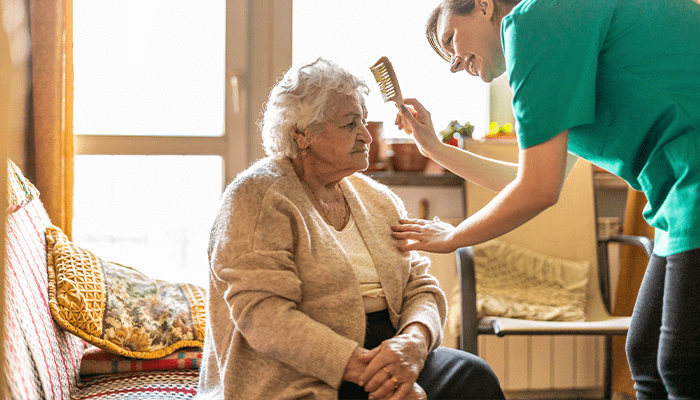
Protecting Senior Care Residents from Elopement Risks
Senior living facilities face some unique risks, particularly when it comes to elopement incidents. Elopement, which occurs when a resident leaves a facility without authorization or supervision, can lead to severe consequences, including injury or even death. This poses a significant liability risk for senior care facilities, leading to regulatory citations, legal claims, and increased insurance premiums.
In a recent webinar, Cathy Knopf, our Clinical Risk Management Consultant, discussed the critical issue of managing elopement in senior care communities. Here are some of the key takeaways and best practices she shared for mitigating elopement risks.
Understanding the Risk of Elopement
Elopement is most common among residents with cognitive impairments such as Alzheimer's or dementia. According to the Alzheimer's Association, more than 50% of senior living residents have some form of cognitive impairment, which makes them particularly vulnerable to elopement. These residents may wander in search of something familiar or simply because they are disoriented, anxious, or upset.
- Elopement can lead to a range of dangers, including:
- Exposure to extreme weather conditions (heat, cold, etc.)
- Dehydration and medical complications due to missed medications
- Drowning, particularly if the facility is near a water source
- Injury from vehicles, especially in busy urban areas
Preventive Measures for Elopement
Preventing elopement starts with understanding each resident's specific risk factors. Facilities should implement a thorough pre-admission screening process that assesses the resident's history of wandering, cognitive abilities, and exit-seeking behaviors. Based on this assessment, care plans should be developed to address the individual needs of each resident.
Here are some effective strategies for elopement prevention:
- Secure Physical Environment: Ensure that all exit doors are alarmed and monitored. Facilities should conduct regular checks to make sure alarms are functioning properly and that unauthorized individuals are not accessing codes to bypass security systems. Windows should also be secured to prevent residents from leaving through non-traditional exits.
- Staff Training and Competency: Staff members must be trained to identify elopement risks, as well as how to manage those risks. Regular elopement drills, including nighttime or low-light scenarios, are essential to maintaining readiness. Staff should also be well-versed in using devices such as Wander Guards, which alert personnel when a resident attempts to leave the premises.
- Resident-Centered Care Plans: Care plans should be tailored to the specific needs of each resident. For those at higher risk of elopement, this could mean increased supervision, regular safety checks, or even placement in a secure unit. Activities that keep residents engaged, such as walking programs or cognitive exercises, can also reduce wandering behavior.
- Visitor and Security Protocols: Visitors should be educated on the facility's security protocols, including the proper use of keypad systems and ensuring that residents do not follow them out of the building. Facilities should also establish clear search procedures for staff in the event a resident goes missing.
Post-Elopement Management
Even with preventive measures in place, it is crucial to have a solid plan for managing an elopement if one occurs. Staff should immediately:
- Conduct a thorough search of the facility and surrounding areas.
- Notify local law enforcement and medical professionals if the resident cannot be located quickly.
- Perform a comprehensive medical evaluation of the resident once found, including a neurological assessment, to ensure no harm occurred during their absence.
After any elopement, it's important to review the event, conduct a root cause analysis, and implement corrective actions to prevent future incidents.
Elopement prevention is a shared responsibility within a senior care facility. Learn more by watching the replay of our webinar, "Elopement Management in Senior Living," or contact our senior living team.
Featured News & Insights

The next five years will be critical for senior living and nursing home providers. Shifts in health system consolidation, CMS programs, and hospital partnerships are already reshaping how skilled...

Watch the Webinar Replay In this webinar, we’ll explore the structural changes that are adversely impacting nursing home skilled care revenues. This session will briefly touch on the impact of ACO...

If your senior care facility is struggling with survey performance, you may already be on CMS's radar. The Special Focus Facility (SFF) designation is more than just a label. It's a warning with real...